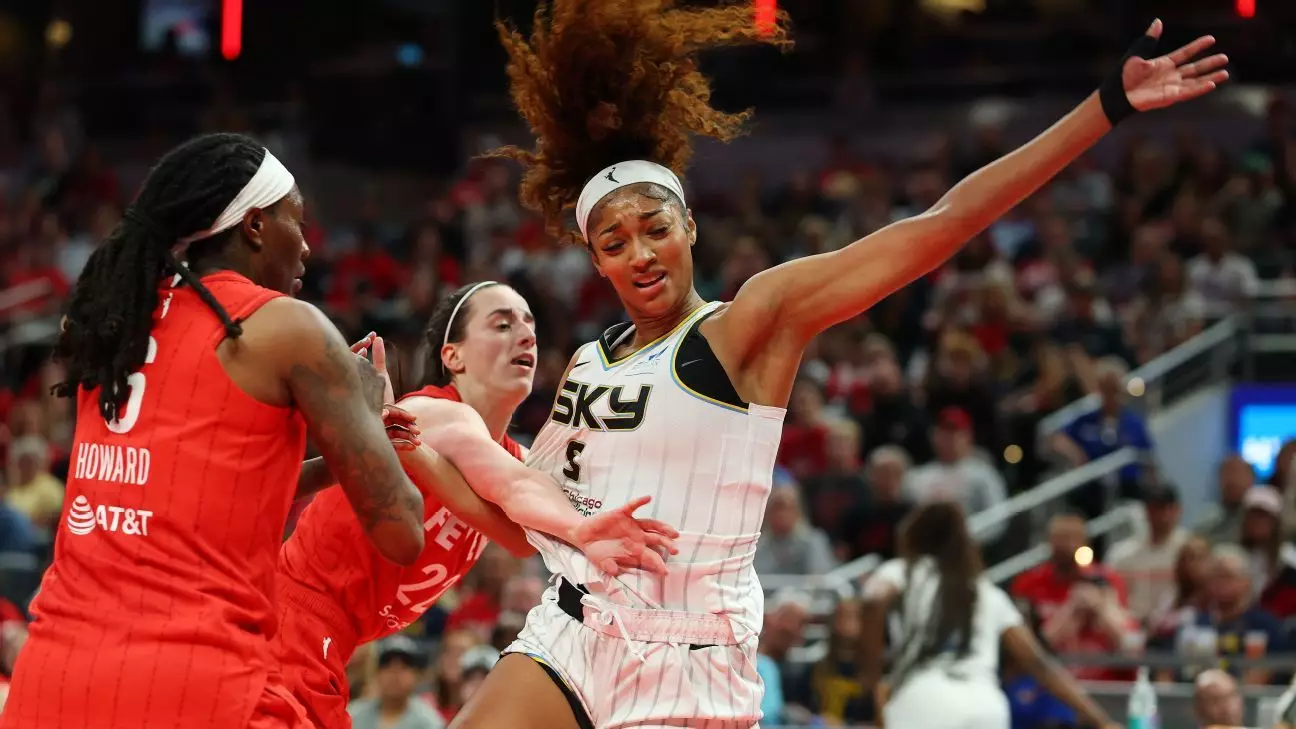The recent incident during a WNBA game between the Chicago Sky and Indiana Fever drew unwanted attention, not just for the action on the court but for the toxic atmosphere that lingered in the stands. After Angel Reese was subjected to an avalanche of “hateful fan comments,” the league found itself at a crossroads, poised to grapple with a pervasive problem that has quietly infiltrated sports culture. Despite the league’s commitments and initiatives aimed at promoting diversity and inclusivity, it is increasingly clear that words, both spoken and written, can cut deeper than any object hurled in a moment of uncontrolled passion.
In a league that champions empowerment and represents the aspirations of countless young athletes, the presence of racism and hate serves as a grim reminder of the societal issues that extend far beyond the hardwood. The WNBA’s statement, which unequivocally condemned these harmful behaviors, reflects an understanding that the court is a microcosm of society. However, the question arises: can these declarations translate into real change, or are they just well-crafted soundbites designed to calm the storm?
A Call to Action: The WNBA’s ‘No Space for Hate’ Policy
The unveiling of the WNBA’s “No Space for Hate” initiative was timely yet seemingly insufficient. While the league has taken commendable steps to address these allegations, such as investigating the incident and working closely with the Players Association, the root of the problem needs more than just policy tweaks; it requires a cultural overhaul. The mere existence of a platform promising to combat hate and promote respect is one thing, but actual enforcement and community engagement are what will define its success.
WNBA Commissioner Cathy Engelbert’s assertion that basketball should be a unifying force rings hollow when faced with the reality of what transpired. Her hopes for arenas filled with energy instead of vitriol feel more aspirational than attainable if the league doesn’t take decisive action. Will the league back its words with policies that lead to tangible penalties for individuals who demonstrate hate? Punishments for fan behavior must extend beyond the court and into the community—this is where the league could make a meaningful impact.
Fan Responsibility and Accountability
The role of fans cannot be understated in this matter. Spectators serve as essential elements that fuel the vigor of the WNBA. However, with this privilege comes responsibility. Attending a game should not equate to an unregulated freedom to hurl insults or denigrate players. The feverish energy that makes live sports exhilarating must be channeled into support, not disdain. The booing sounds that erupted during Reese’s free throws signify more than just a reaction; they are a reflection of a cultural mindset that deems it acceptable to target individuals based on their identity.
But let’s not overlook the complexity of these situations. Both Reese and Caitlin Clark downplayed their on-court confrontation, highlighting a mutual respect that counters the narratives spun by a sensationalized media and a divisive fanbase. Their actions indicate a desire for professionalism despite the chaotic environment around them. Yet, if fans are incapable of mirroring this sportsmanship, the league’s gains in social justice could be undermined by a prevailing culture of hate among its following.
A Community United: The Greater Implication
This incident presents a chance for the WNBA—not just a threat. If handled thoughtfully, this could become a cornerstone for future initiatives fostering dialogue around race, gender, and sportsmanship. Rather than viewing this as a moment of disgrace, what if it transforms into a catalyst for change throughout the sports world? The league stands at a pivotal junction, one that requires introspection not solely within the organization but among its fans and community as well.
Fans, players, and even the broader sports ecosystem must recognize that the consequences of racism and hate extend far beyond the immediate context of a game. By championing a unified front against these issues, the WNBA can shape a new narrative that resonates throughout the sporting world. If the league wants to uphold its reputation as a leader in social progress, it must do more than write policy statements—it must embody them. Only then can the WNBA genuinely become a sanctuary for all.


Leave a Reply